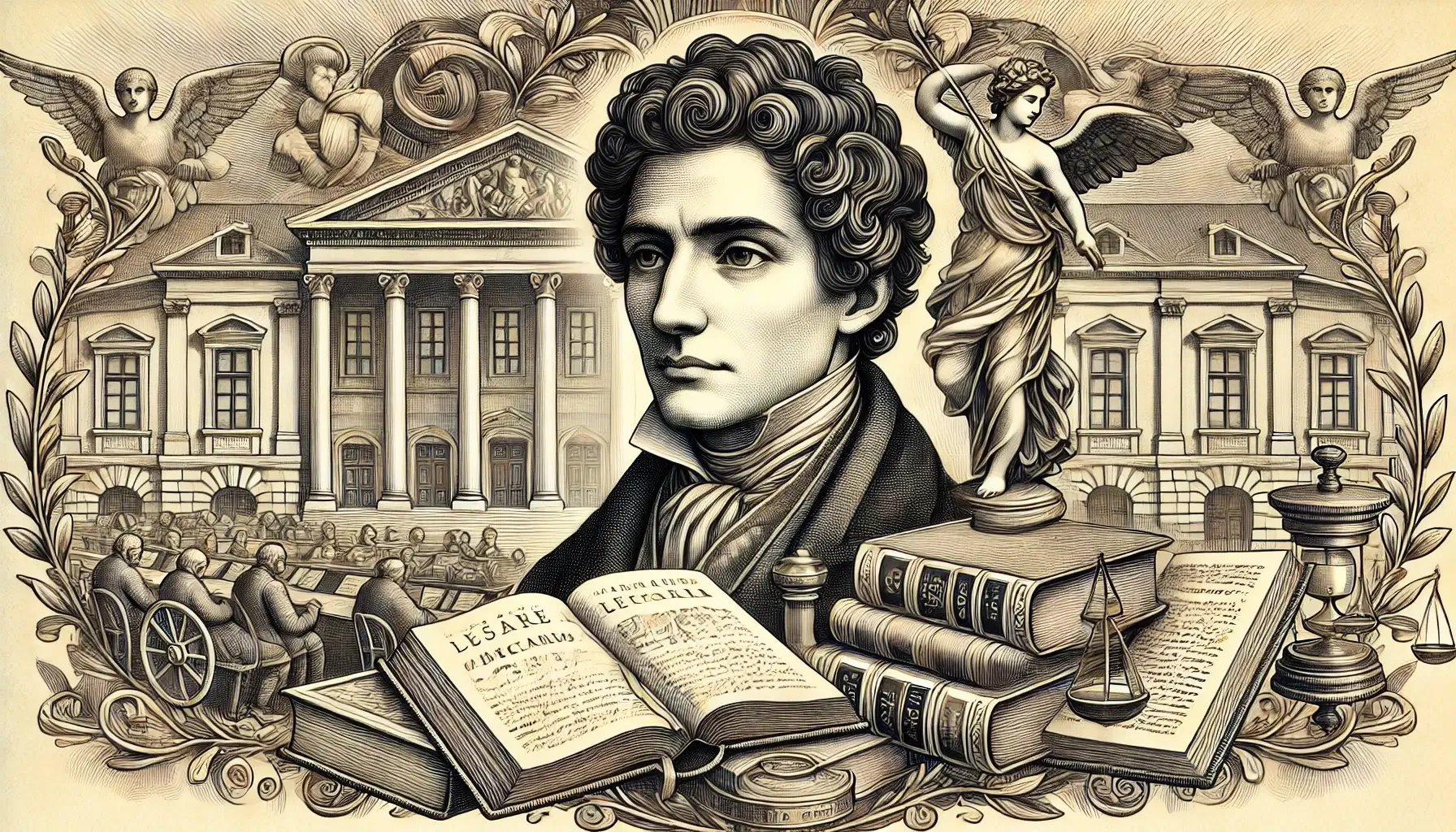Cesare Beccaria (1738–1794) is widely recognized as one of the founding figures of classical criminology. His groundbreaking work, Dei delitti e delle pene (On Crimes and Punishments), published in 1764, profoundly influenced the development of modern legal systems and criminological thought. By advocating for rationality, proportionality, and fairness in the administration of justice, Beccaria sought to reform the harsh and arbitrary criminal justice practices of his time. This article explores his life, ideas, and lasting impact on the field of criminology.
Early Life and Intellectual Influences
Beccaria was born into an aristocratic family in Milan, Italy, on March 15, 1738. Despite his privileged upbringing, he experienced disillusionment with the status quo, particularly the inefficiency and cruelty of the legal system. He pursued his education at the University of Pavia, where he earned a degree in law.
During his intellectual journey, Beccaria became associated with the Enlightenment, a period marked by an emphasis on reason, science, and individual rights. He joined the “Academy of Fists,” a group of progressive thinkers who debated social reform and justice. Influenced by philosophers like Montesquieu, Voltaire, and Rousseau, Beccaria began to develop his revolutionary ideas about crime and punishment.
Dei delitti e delle pene: A Revolutionary Work
Published anonymously in 1764, Dei delitti e delle pene challenged the prevailing notions of crime and justice. The book criticized the excessive use of torture, capital punishment, and arbitrary sentencing. It emphasized that laws should serve as social contracts designed to promote the greatest happiness for the greatest number of people.
Beccaria’s work was revolutionary because it introduced key principles that remain central to modern criminology and criminal justice systems.
Key Principles of Beccaria’s Thought
Proportionality in Punishment
Beccaria argued that punishments should be proportional to the crimes committed. He believed that overly harsh penalties were not only unjust but also ineffective in deterring crime. According to him, the certainty and swiftness of punishment were more critical than its severity in preventing criminal behavior.
Rejection of Torture and Capital Punishment
One of Beccaria’s most radical ideas was his opposition to torture and the death penalty. He viewed torture as barbaric and counterproductive, as it often led to false confessions. Similarly, he argued that capital punishment was an unnecessary and irreversible act of violence that failed to deter crime effectively.
Prevention Over Punishment
Beccaria emphasized the importance of preventing crime rather than merely punishing offenders. He advocated for clear, fair, and well-publicized laws that would guide behavior and reduce criminal activity.
The Social Contract and Rule of Law
Beccaria believed that laws should be grounded in the social contract, reflecting the collective will of the people. He stressed the importance of equality before the law, rejecting privileges based on social status.
Rational Choice Theory
Beccaria’s work laid the foundation for rational choice theory, which posits that individuals make decisions, including criminal ones, based on a rational calculation of costs and benefits. By increasing the perceived costs of crime through effective punishment, society could deter potential offenders.
Impact on Criminology and Legal Systems
Beccaria’s ideas had an immediate and widespread impact, influencing legal reforms across Europe and beyond. His work inspired thinkers such as Jeremy Bentham, who further developed the utilitarian approach to law and punishment. Many of Beccaria’s principles were incorporated into the legal codes of various countries, including the French Penal Code of 1791 and later reforms in the United States and other nations.

Influence on Modern Criminology
Foundation of Classical Criminology
Beccaria’s emphasis on rationality, proportionality, and deterrence became the cornerstone of classical criminology. His ideas continue to shape policies on sentencing, punishment, and crime prevention.
Human Rights and Justice
By condemning torture and advocating for humane treatment of offenders, Beccaria contributed to the evolution of human rights within the criminal justice system. His work resonates with contemporary debates on the ethics of punishment and the treatment of prisoners.
Influence on the Deterrence Theory
Modern deterrence theory, which focuses on the certainty, swiftness, and severity of punishment, owes much to Beccaria’s insights. Policymakers still draw on his principles to design effective crime control strategies.
Critiques and Limitations
Despite his groundbreaking contributions, Beccaria’s work has faced criticism and limitations. For instance:
Simplistic Assumptions
Critics argue that Beccaria’s rational choice model oversimplifies human behavior, ignoring factors such as emotions, social influences, and psychological conditions.
Lack of Focus on Rehabilitation
While Beccaria emphasized deterrence and prevention, his work paid little attention to rehabilitating offenders or addressing the root causes of crime.
Eurocentric Perspective
Beccaria’s ideas were rooted in the European Enlightenment, which may limit their applicability to diverse cultural and legal contexts.

Legacy of Cesare Beccaria
Beccaria’s legacy endures in the fields of criminology, law, and human rights. His work serves as a reminder of the importance of reason and humanity in the pursuit of justice. By challenging the cruelty and arbitrariness of his time, Beccaria laid the groundwork for more equitable and effective criminal justice systems.
Conclusion
Cesare Beccaria’s contributions to criminology and legal reform remain unparalleled. His visionary ideas about proportionality, fairness, and the prevention of crime continue to inspire scholars, policymakers, and advocates for justice worldwide. As societies strive to balance security and individual rights, Beccaria’s work offers timeless lessons on the pursuit of a just and humane legal system.

